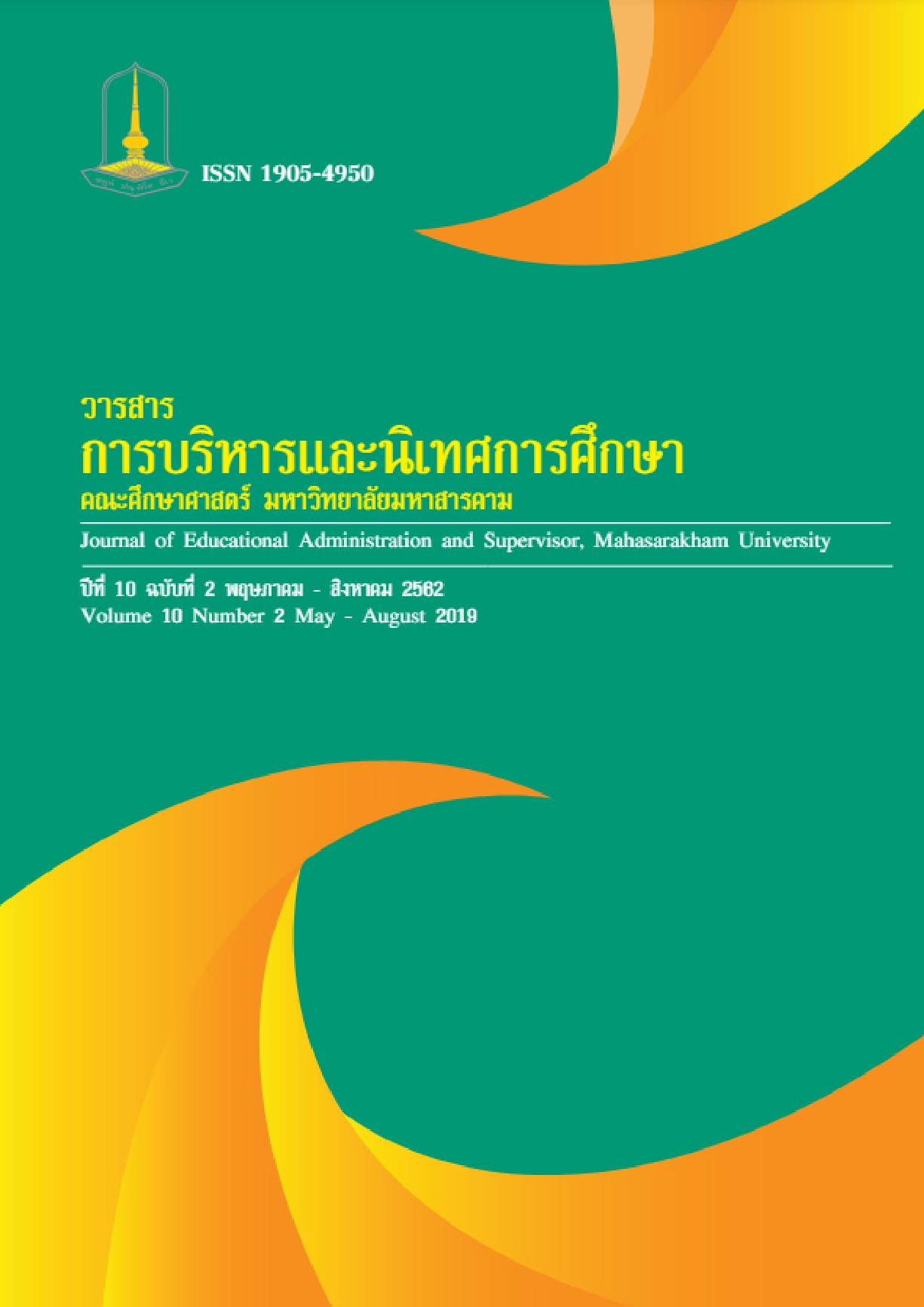A Study of Reading Strategies Used by Thai Civil Engineers in Reading English Safety Materials
Main Article Content
บทคัดย่อ
The purpose of this research study is to investigate the use of reading strategies in the reading of English safety materials by Thai civil engineers as well as to find out the relationship between the work experience of Thai civil engineers and their use of different types of reading strategies. The participants were 53 Thai civil engineers who had work experience of durations from 1 to 18 years. This study focused on the use of the Metacognitive Reading Strategies collected by using the Survey of Reading Strategies (SORS) of Mokhtari and Sheorey (2002). The result of the study reported that Thai civil engineers used a wide range of strategies but there was a preference for global reading strategies, followed by problem-solving strategies and support strategies, and also revealed the use of cognitive strategies, compensation strategies and social strategies in reading English safety materials. The results of this study also showed that there was no correlation between their use of strategies and their work experience.
Downloads
Article Details
เอกสารอ้างอิง
Abdelaal, N. and Sase, A. (2014). Relationship between Prior Knowledge and Reading Comprehension. Advances in Language and Literary Studies, 5(6): 125-131.
Anderson, N.J. (2002). The role of metacognition in second language teaching and learning. Retrieved from http://files.eric.ed.gov/fulltext/ED463659.pdf.
Anderson, N. J. (2003). Scrolling, Clicking, and Reading English: Online Reading Strategies in a Second/Foreign Language. The Reading Matrix, 3(3): 1-33.
Barnett, M.A. (1988). Reading Through Context: How Read Perceived Strategy Use Affects L2 Comprehension. The Modern Language Journal, 72(2): 150-162.
Best, J.W. and Kahn, J.V. (1993). Research in Education. 7th ed.. New Delhi: PrenticeHall of India Private Limited.
Boonkongsaen, N., Sujinpram, N. and Verapreyagoon, J. (2016). English Reading Strategies Used by Thai Students with Different English Exposures from Different Educational Institutions. ABAC Journal, 36(1): 47-67.
Chanprasert, V. (2013). Metacognitive Reading Strategies to improve Reading Comprehension and Performance. Sripatum Review of Humanities and Social Sciences, 13(2): 94-105.
Chen, J. and Intaraprasert, C. (2014). Reading Strategies Employed by University Business English Majors with Different Levels of Reading Proficiency. English Language Teaching, 7(4): 25-37.
Cronbach, L. J. (1951). Coefficient alpha and the internal structure of tests. Psychometrika, 16(3): 297-334.
Dawadi, S. (2017). The Relationship between Reading Strategy Use and EFL Test Performance. Journal of NELTA, 22(1-2): 38-52.
Hinkle, D.E., Wiersma, W. and Jurs, S.G. (1998). Applied Statistics for the Behavioral Sciences. 4th ed. Boston: Houghton Mifflin.
Likert, R. (1932). A Technique for the Measurement of Attitudes. Archives of Psychology, 140, 1-55.
Mokhtari, K. and Reichard, C.A. (2002). Assessing Students’ Metacognitive Awareness of Reading Strategies. Journal of Educational Psychology, 94(2): 249-259.
Mokhtari, K. and Sheorey, R. (2002). Measuring ESL students’ awareness of reading strategies. Journal of Developmental Education, 25(3): 2-10.
Nisbet, D. and Huang, J. (2015). Reading strategy use and reading proficiency of EFL students in China. The Asian Journal of Applied Linguistics, 2(3): 202-212.
Oxford, R.L. (2003). Language Learning Styles and Strategies: An Overview. GALA, 1-25. Ramli, N., Darus, S. and Bakar, N. (2011). Metacognitive Online Reading Strategies of Adult ESL Learners Using a Learning Management System. Theory and Practice in Language Studies, 1(3): 195-204.
Rastegar, M., Mehrabi Kermani, E., and Khabir, M. (2017). The Relationship between Metacognitive Reading Strategies Use and Reading Comprehension Achievement of EFL Learners. Open Journal of Modern Linguistics, 7, 65-74.
Roongrojdee, N. (2001). English for Engineers: Speed Reading and Note Taking. 2nd ed. Bangkok: Technology Promotion Association (Thailand-Japan).
Shigekazu, N. (1995). Fuanzen Kōdō Saigai Zero e no Chōsen. Bangkok:Technology Promotion Association (Thailand-Japan).
Sillapee, T. (2016, June). The English Speaking Development for Civil Engineers: A Case Study in a Private Construction Company. Paper presented at The 3rd National Conference and Research Presentation 2016 “Toward The Second Decade: Sustainability Knowledgement on Research Integration”, Nakhon Ratchasima, Thailand.
Sophabutr, P. (2012). Compentencies of Associate Industrial Engineers for the Preparedness of ASEAN Economic Community (Unpublished master’s thesis). National Institute of Development Administration, Bangkok, Thailand.
Tanthanis, T. (2016). A Study of English Reading Comprehension Strategies of FirstYear College Students of Thammasat University (Lampang Campus), Proceedings of 54th Kasetsart University Annual Conference (pp. 109-116). Bangkok, Thailand.
Thampradit, P. (2008). Strategies in Reading Expository Texts Written in English of Public University Engineering Students in Bangkok Metropolitan Area. King Mongkut’s Institute of Technology Ladkrabang, Bangkok, Thailand.
Vecchio-Sadus, A.M. (2007). Enhancing safety culture through effective communication. Safety Science Monitor, 11(3): 1-10.


